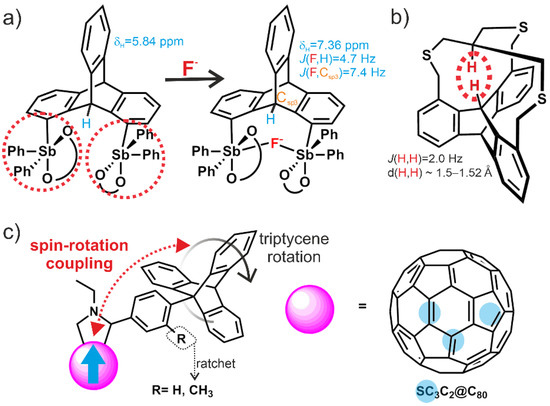Triptycene Derivatives: From Their Synthesis to Their Unique Properties
Mateusz Woźny, Adam Mames, Tomasz Ratajczyk
Anthracenes are an important class of acenes. They are being utilized more and more often in chemistry and materials sciences, due to their unique rigid molecular structure and photoreactivity. In particular, photodimerization can be harnessed for the fabrication of novel photoresponsive materials. Photodimerization between the same anthracenes have been investigated and utilized in various fields, while reactions between varying anthracenes have barely been investigated. Here, Nuclear Magnetic Resonance (NMR) spectroscopy is employed for the investigation of the photodimerization of two exemplary anthracenes: anthracene (A) and 9-bromoanthracene (B), in the solutions with only A or B, and in the mixture of A and B. Estimated k values, derived from the presented kinetic model, showed that the dimerization of A was 10 times faster in comparison with B when compounds were investigated in separate samples, and 2 times faster when compounds were prepared in the mixture. Notably, the photoreaction in the mixture, apart from AA and BB, additionally yielded a large amount of the AB mixdimer. Another important advantage of investigating a mixture with different anthracenes is the ability to estimate the relative reactivity for all the reactions under the same experimental conditions. This results in a better understanding of the photodimerization processes. Thus, the rational photofabrication of mix-anthracene-based materials can be facilitated, which is of crucial importance in the field of polymer and material sciences.

